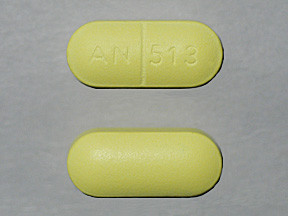SALSALATE - ORAL
PHONETIC PRONUNCIATION: (SAL-suh-late)
COMMON BRAND NAME(S): Disalcid
GENERIC NAME(S): salsalate
Uses
USES: Salsalate is used to relieve pain from various conditions. It also reduces pain, swelling, and joint stiffness from arthritis. This medication is known as a nonsteroidal anti-inflammatory drug (NSAID).
How to use SALSALATE - ORAL
HOW TO USE: Take this medication by mouth, usually 2 to 3 times daily with a full glass of water (8 ounces or 240 milliliters) or as directed by your doctor. Do not lie down for at least 10 minutes after taking this drug. If stomach upset occurs while taking this medication, take it with food, milk, or an antacid. Dosage is based on your medical condition and response to therapy. To reduce your risk of stomach bleeding and other side effects, take this medication at the lowest effective dose for the shortest possible time. Do not increase your dose, take it more frequently, or take it for a longer time than prescribed. For ongoing conditions such as arthritis, continue taking this medication as directed. Discuss the risks and benefits with your doctor or pharmacist. For certain conditions (e.g., arthritis), it may take up to 2 weeks of taking this drug regularly until you get the full benefit. If you are taking this drug "as needed" (not on a regular schedule), remember that pain medications work best if they are used as the first signs of pain occur. If you wait until the symptoms have worsened, the medicine may not work as well. Inform your doctor if your symptoms persist or worsen or if you develop new symptoms.
Side Effects
Precautions
Interactions
Overdose
Images
Reviews
Faq for SALSALATE - ORAL
Salsalate is an oral medication used to reduce pain and inflammation in conditions such as arthritis.
Salsalate works by inhibiting the production of certain chemicals in the body that cause pain and inflammation.
Salsalate is primarily used to treat symptoms of arthritis, including osteoarthritis and rheumatoid arthritis.
Salsalate is typically taken orally with or without food, as directed by your doctor. It is important to follow the prescribed dosage and timing.
Common side effects of salsalate may include stomach upset, heartburn, diarrhea, dizziness, and headache. It is important to inform your doctor if any side effects become severe or persistent.
Yes, salsalate may interact with certain medications, including blood thinners, diuretics, and medications for diabetes. It is essential to inform your doctor about all the medications you are taking before starting salsalate.
The safety of salsalate during pregnancy is not well established. It is advisable to consult with your doctor before using this medication if you are pregnant or planning to become pregnant.
Salsalate is not typically prescribed for children. It is essential to consult with a pediatrician before giving salsalate to a child.
The onset of action for salsalate may vary from person to person. It might take several weeks of regular use to experience the full effect of the medication.
Warning
WARNING: Nonsteroidal anti-inflammatory drugs (including salsalate) may rarely increase the risk for a heart attack or stroke. This effect does not apply to low-dose aspirin. (See Drug Interactions section.) This effect can happen at any time while taking this drug but is more likely if you take it for a long time. The risk may be greater if you have heart disease or increased risk for heart disease (for example, due to smoking, family history of heart disease, or conditions such as high blood pressure or diabetes). Do not take this drug right before or after heart bypass surgery (CABG). Also, this drug may rarely cause serious (rarely fatal) bleeding from the stomach or intestines. This bleeding can occur without warning symptoms at any time during treatment. Stop taking this medication and seek immediate medical attention if you notice any of the following rare but very serious side effects: chest pain, severe dizziness, weakness on one side of the body, sudden vision changes, slurred speech, black stools, persistent stomach/abdominal pain, vomit that looks like coffee grounds. (See also Precautions section.) Talk with your doctor or pharmacist about the risks and benefits of treatment with this medication.
Disclaimer
IMPORTANT: HOW TO USE THIS INFORMATION: This is a summary and does NOT have all possible information about this product. This information does not assure that this product is safe, effective, or appropriate for you. This information is not individual medical advice and does not substitute for the advice of your health care professional. Always ask your health care professional for complete information about this product and your specific health needs.


No Reviews Yet